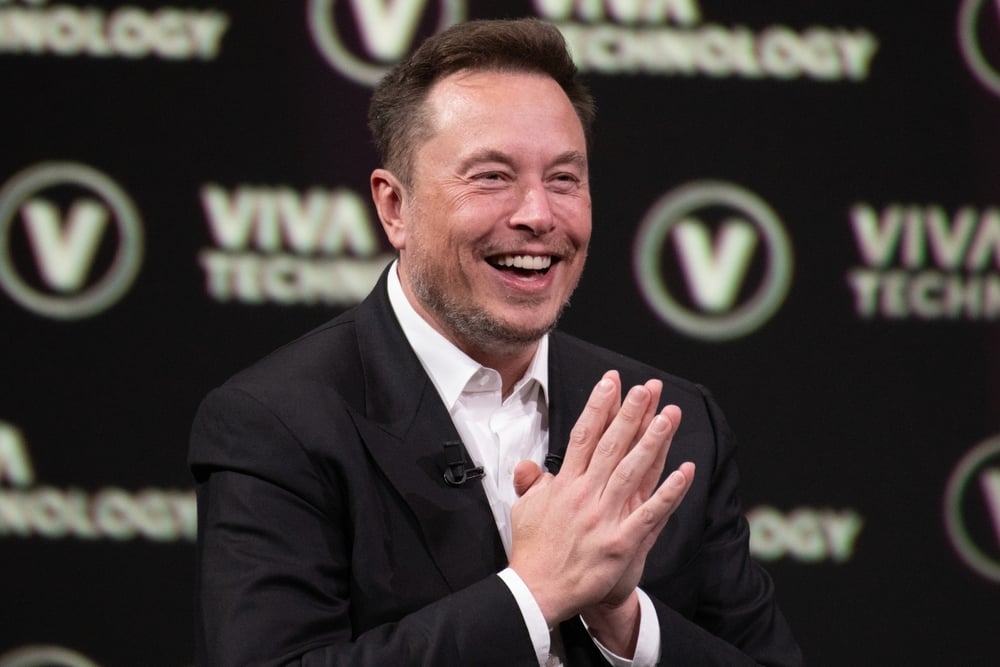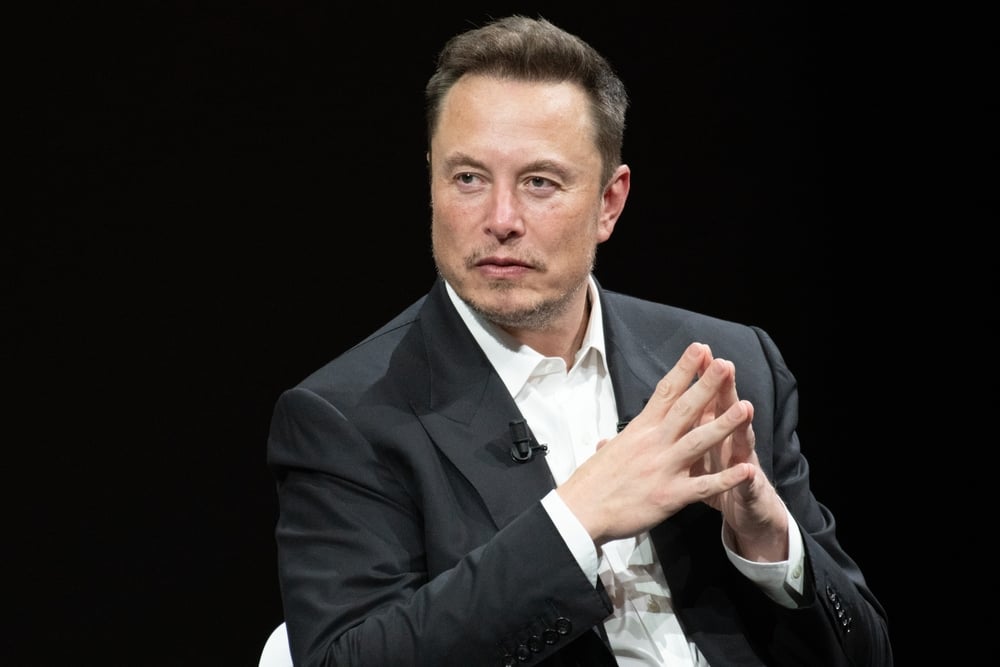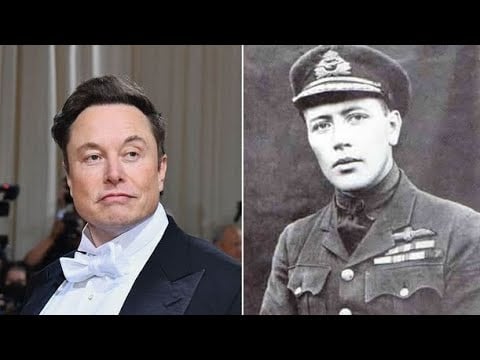Elon Musk, the billionaire entrepreneur and CEO of SpaceX and Tesla, is known for his bold statements and eccentric sense of humor. His latest remark, however, has sparked widespread buzz: Musk claimed on X (formerly Twitter) that he is a 3,000-year-old time-traveling alien on a mission to return to his home planet.
While many are debating whether this was a joke, a cryptic philosophical metaphor, or just another way to amplify his mystique, one thing is certain—Musk knows how to keep the internet talking.
Known for his eccentric humor and knack for stirring debate, Musk’s declaration has unleashed a torrent of reactions across social media.
From skepticism to outright amusement, his statement highlights the blend of modern mythology and the power of celebrity influence.
This article explores the details of Musk’s claim, the world’s diverse responses, and the larger implications of such provocative remarks in today’s media-driven society.

The Claim in Detail
Elon Musk recently stirred the internet with a typically enigmatic post on X (formerly Twitter), declaring himself a 3,000-year-old time-traveling alien.
In his cryptic message, Musk implied he has been journeying through time and space, perhaps in a quest to return to his home planet. The post lacked any additional explanation, leaving his followers buzzing with speculation and debate.
This isn’t Musk’s first dive into extraterrestrial-themed humor. In the past, he has jokingly referred to himself as an alien and credited his innovative ideas to “proof” of otherworldly intelligence.
While many see these remarks as playful nods to internet memes and pop culture, others view them as a reflection of his fascination with space and the mysteries of the universe.
The ambiguity of Musk’s claim—whether a sincere revelation, playful satire, or a calculated tactic to captivate his audience—left many puzzling over its true intent.
Regardless of his motivations, the post further deepened Musk’s already enigmatic persona, skillfully blurring the boundaries between humor, self-mythologizing, and theatrical public performance.
Public and Media Reaction
Elon Musk’s assertion of being a 3,000-year-old time-traveling alien ignited an instant and lively reaction across social media and news outlets. On X, his followers quickly chimed in with a mix of humor and disbelief.
Many interpreted the claim as classic Muskian dry humor, asking for time-travel advice or speculating about the alien technologies he might secretly harbor. Memes surged within hours, portraying Musk as everything from an intergalactic adventurer to a millennia-old vampire.
The playful responses highlighted how his audience often embraces his eccentricities as part of his larger-than-life persona.
Meanwhile, media outlets approached the claim with a mix of amusement and analysis. While most dismissed it as a lighthearted joke, others speculated on potential deeper motives.
Was it a calculated move to draw attention, a philosophical metaphor for human innovation, or simply an offhand comment that spiraled into viral fame? Regardless of intent, the statement dominated headlines, ranging from witty wordplay to serious dissections of Musk’s enigmatic character.
The media spectacle underscored the growing tendency to elevate even the most outlandish celebrity remarks into cultural touchstones.
Not all reactions to Musk’s claim were lighthearted or positive. Critics seized the moment to question his growing tendency to blur the lines between humor and responsibility, particularly as a leading figure in the tech industry.
They argued that even his offhand remarks carry significant weight and have the potential to shape public perception, whether intentionally or not.
For some, the alien statement was seen as a harmless quip, while others viewed it as an ill-timed distraction from more pressing matters.
Either way, the episode showcased Musk’s uncanny knack for commanding the news cycle, sparking a complex mix of wonder, amusement, and critique that continues to define his public persona.

Elon Musk’s History of Unconventional Statements
Elon Musk has built a reputation for his eccentric and unpredictable communication style, especially on social media. His claim of being a time-traveling alien is just the latest in a series of unconventional remarks that have captured public attention.
Over the years, Musk has skillfully blended humor, curiosity, and controversy in his statements, often leaving audiences to speculate about his true intentions and adding to the mystique surrounding his persona.
One of Elon Musk’s most infamous moments occurred during an interview when he referred to himself as an alien, suggesting that his ability to innovate could only be explained by extraterrestrial origins.
Though clearly made in jest, the comment quickly became a cultural reference, fueling memes and discussions about Musk’s seemingly otherworldly knack for disrupting industries.
Similarly, his cryptic tweets like “Nuke Mars” and “Let’s create a mechagodzilla” often spark a mix of laughter and confusion, blurring the line between legitimate ideas and playful musings.
Musk’s propensity for such remarks has not been without its consequences. His offhand comment about taking Tesla private at $420 per share led to an SEC investigation, highlighting how his words can have real-world ramifications.
Despite this, Musk continues to lean into his role as a provocateur, regularly posting about everything from advanced AI to existential threats facing humanity.
His tendency to provoke, entertain, and challenge conventions reflects a broader strategy of keeping himself—and by extension, his ventures—at the forefront of public attention.
What makes Musk’s statements resonate—whether about time travel, colonizing Mars, or artificial intelligence—is his ability to tap into a collective sense of curiosity and wonder.
By blending humor with grand, sometimes outlandish ideas, Musk has crafted a public persona that has evolved into a modern mythos. His claim of being a 3,000-year-old alien is just the latest chapter in this ongoing narrative, further cementing his status as not only an innovator but also a cultural phenomenon.
Musk’s ability to capture the imagination of his audience keeps him at the intersection of technological progress and popular intrigue, ensuring his place as a central figure in both tech and modern mythology.
Psychological and Social Perspectives
Elon Musk’s declaration of being a time-traveling alien can be viewed not only through the lens of his distinctive persona but also from psychological and social perspectives. Experts suggest that such statements, whether intentional or subconscious, serve multiple purposes.
Musk’s playful yet provocative comments tap into a universal fascination with the unknown, engaging his audience by combining humor, mystery, and absurdity. This strategy of captivating and entertaining his followers is a key element of his communication approach, ensuring his continued relevance in public discourse.
From a psychological perspective, Musk’s remarks reflect an acute awareness of how narratives shape public perception. As one of the most recognizable innovators in the world, he understands the cultural influence he holds.
By making statements that blur the line between reality and satire, Musk not only sustains public interest in his persona but also encourages his audience to think beyond traditional boundaries.
These provocative remarks generate a mix of disbelief and curiosity, often leading to discussions that touch on his larger ambitions, such as advancing space exploration or addressing existential risks.
In this way, Musk uses his statements as a tool to inspire engagement, even when the content itself seems far-fetched.
Elon Musk’s alien comment also highlights the modern phenomenon of celebrity mythmaking. In today’s world, where social media amplifies every word and action, public figures like Musk often craft larger-than-life personas that resonate deeply with their followers.
By portraying himself as an alien or time traveler, Musk not only aligns himself with futuristic technologies but also taps into a cultural narrative that celebrates the extraordinary. This persona feeds the public’s desire for icons who transcend the ordinary.
However, experts caution that such behavior can blur the lines between satire and reality, potentially leading to confusion.
For Musk, these remarks strengthen his identity as a disruptor while raising questions about the responsibility of high-profile individuals to communicate more transparently.
While his statements may be intended as playful, they also reflect a broader trend of how influential figures use carefully constructed narratives to shape their public identities.
Whether viewed as a harmless joke or a deliberate effort to provoke deeper thought, Musk’s alien comment provides an intriguing case study in the intersection of psychology, media, and cultural influence, showcasing how personal branding and public discourse are increasingly intertwined.






